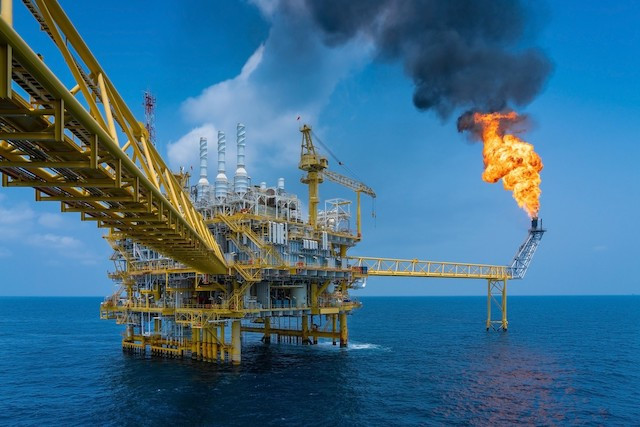While the financial world swears by green finance, a French study shows that the largest banks in the euro zone still strongly support the fossil fuel sector, through credit products or investments.
Commissioned by the Rousseau Institute, associated with environmental NGOs Reclaim Finance and Amis de la Terre, the "Fossil assets, the new subprimes?" study calculated that the 11 largest institutions in the euro area hold more than 530bn fossil fuel shares, a figure equivalent to 95% of their equity.
No deceleration?
While the global production of oil, coal and gas must decrease by 6% per year by 2030 in an attempt to limit global warming to 1.5°C, the banks analysed--BNP Paribas, Crédit Agricole, Societe Generale, Banque Populaire Caisse d'Épargne, Deutsche Bank, Commerzbank, UniCredit, Intesa Sanpaolo, Santander, BBVA and ING--apparently haven’t slowed down their financing in fossil fuels.
The French study points out that, according to the “Banking on Climate Chaos 2021” report, these 11 banks still granted €95bn in additional financing in 2019 to the fossil fuel sector (exploration, exploitation, distribution of coal resources, of oil and gas and the production of electricity from these sources).
A double risk
For the authors, the risk is twofold: climatic, but also financial. Because, they say, by continuing to invest in fossil fuels, big banks are running the risk of seeing their portfolios lose value as the energy transition progresses, which will reduce the role of hydrocarbon players and coal.
They do not hesitate to predict "significant turbulence" or even "a new financial crisis". The amounts invested, which represent a significant portion of equity--from 68% for Santander to 131% for Crédit Agricole--risk placing them again in the red, as at the worst times of the subprime crisis.
"The devaluation of fossil fuels promises to spread over several years," according to the study. But the authors insist on the necessity of awareness for a change in model by the major European banking players. "The colossal risks banks take to secure short-term profits could become the burden of states and citizens."
This article was originally published in French on Paperjam and has been translated and edited for Delano.
